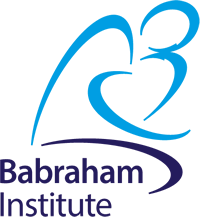About the Project
The adaptive immune system generates billions of antibodies to combat the countless pathogens we encounter. This key function underpins the normal healthy immune response, while defects contribute to immunodeficiency diseases, poor response to infection and vaccination in elderly people, and B cell leukaemias. The first step is bone marrow B cell development and VDJ recombination: cutting and pasting together 100s of V, D and J genes in the large immunoglobulin (antibody) gene loci in multiple combinations. Our lab studies epigenetic mechanisms that promote B cell development, open up immunoglobulin chromatin to bring genes together for recombination, and act locally on individual genes. These include non-coding RNA transcription, histone modifications and transcription factor binding, and 3D chromosomal interactions in the nucleus. We have recently developed VDJ-seq, a next generation sequencing assay which has provided the first detailed picture of the complex primary antibody repertoire (Bolland et al 2016). We have found that actively recombining immunoglobulin heavy chain (Igh) (Bolland et al 2016) and Igkappa light chain (Matheson et al 2017) V genes have one of two active local chromatin signatures that determine whether they are used for recombination.
This project will apply our knowledge of B cell development to understand how our immune system ages. In ageing, both in people and in the mouse models we use, bone marrow B cell numbers are drastically reduced, and the diversity of the antibody repertoire is restricted because many V genes are not used. Together these defects underpin the profound loss of immune function in ageing. We have recently completed a large collaborative study of the underlying causes. Using genome-wide transcriptome, chromatin accessibility and genome organization assays (RNA-seq, ChIP-seq, ATAC-seq, capture HiC), we have identified numerous genes that are impaired or overexpressed in ageing bone marrow B cells (Koohy, Bolland, Matheson et al 2018). This project will avail of this data to identify and functionally characterize dysregulated factors and pathways important for B cell expansion and immunoglobulin recombination. In particular, several components of the Insulin-like growth factor receptor (Igf1r) signaling pathway are downregulated in ageing. This pathway is important for both proliferation and metabolism, and is implicated in ageing in many systems but these finding both reveal a new role for this pathway in B cells and a novel epigenetic role in its regulation.
This project will take a top-down and a bottom-up approach. First we will investigate the consequences of loss of these components in established mouse models in which the relevant genes are deleted specifically in bone marrow B cells. We will ask: How does deletion impact on B cell developmental progression, proliferation, recombination, diversity of the antibody repertoire? How are downstream signaling pathways altered and how does this in turn affect the transcriptome and its epigenetic drivers?
Second, we will investigate how these components are regulated at the epigenetic level. Our findings suggest that they are repressed by Polycomb-mediated and miRNA mechanisms, and by loss of contact with distal enhancers. We will investigate these mechanisms using Crispr-Cas9 targetting of key DNA elements and appropriate inhibitors in in vitro B cell systems, to determine the key epigenetic regulators impaired in ageing.
The PhD project will include both experimental (‘wet’) and bioinformatics (‘dry) components. Techniques are all well-established in the lab and will include flow cytometry, mouse models, signaling assays, RNA-seq, VDJ-seq, capture HiC, ChIP-seq, single cell sequencing, bioinformatics, Crispr-Cas knockout. Extensive training and assistance in bioinformatics will be provided by the Babraham Bioinformatics Group.
These studies have major implications for understanding immunodeficiency and ageing, will be complementary to other studies in the lab on mouse and human B cell development and antibody repertoires, genome organization and ageing B cell defects, and may provide targets to ameliorate defects in B cell development and antibody production in ageing.
For more information, please visit our website:
https://www.babraham.ac.uk/our-research/lymphocyte/anne-corcoran/
or contact Anne Corcoran: [Email Address Removed]
References
Koohy, H., Bolland, DJ., Matheson, LS., Schoenfelder, S., Stellato, C., Dimond, Varnai, Chovanec, Chessa, Denizot, J., Manzano Garcia, R., Wingett, S., Freire-Pritchett, P., Nagano, T., Hawkins, P., Stephens, L., Elderkin, S., Spivakov, M., Fraser, P., Varga-Weisz, PD* and Corcoran, AE* (2018) Genome organisation and chromatin analysis identify transcriptional downregulation of insulin-like growth factor signalling as a hallmark of ageing in developing B cells. Genome Biology, 19: 126-150. https://doi.org/10.1186/s13059-018-1489-y (* joint senior authors)
Chovanec, P., Bolland, D.J., Matheson, L.S., Krueger, F., Andrews, S., and Corcoran. A.E.(2018)
Unbiased quantification of immunoglobulin diversity at the DNA level with VDJ-seq. Nature Protocols 13: 1232-1251
Matheson, L.S., Bolland, D.J., Chovanec, P, Krueger, F., Andrews, S., Koohy and Corcoran. A.E. (2017) Local chromatin Features including PU.1 and IKAROS Binding and H3K4 Methylation shape the repertoire of immunoglobulin Kappa genes chosen for V(D)J recombination. Front. Immunol. 8:1550. http://doi.org/10.3389/fimmu.2017.01550
Bolland, D.J, Koohy, H., Wood, A.L., Matheson, L.S., Krueger, F., Stubbington, M.J.T., Baizan-Edge, A., Chovanec, P., Stubbs, B.A., Tabbada, K., Andrews, S.R., Spivakov, M., and Corcoran, A.E. (2016) Two mutually exclusive local chromatin states drive efficient V(D)J recombination. Cell Reports 15: 1-13
Stubbington, MJT and Corcoran, AE. (2013) Non-coding transcription and large-scale nuclear organisation of immunoglobulin recombination Curr Opin Genet Dev 23: 81-88

 Continue with Facebook
Continue with Facebook

